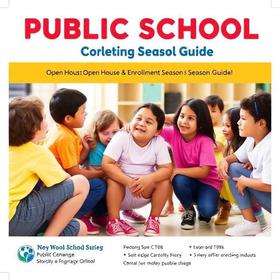Top Rankings
Tahoma School District ranks among the top 20% of public school district in Washington for:
Category
Attribute
Overall Rank
Highest overall rank (Top 5%)
Math Proficiency
Highest math proficiency (Top 10%)
Reading/Language Arts Proficiency
Highest reading/language arts proficiency (Top 10%)
Science Proficiency
Highest science proficiency (Top 10%)
Graduation Rate
Highest graduation rate (Top 20%)
Community Size
Largest student body (number of students) (Top 1%)
For the 2025-26 school year, there are 6 public preschools serving 4,186 students in Tahoma School District. This district's average pre testing ranking is 10/10, which is in the top 10% of public pre schools in Washington.
Public Preschools in Tahoma School District have an average math proficiency score of 66% (versus the Washington public pre school average of 45%), and reading proficiency score of 72% (versus the 49% statewide average).
Minority enrollment is 44% of the student body (majority Asian), which is less than the Washington public preschool average of 54% (majority Hispanic).
Overview
This School District
This State (WA)
# Schools
10 Schools
801 Schools
# Students
9,233 Students
280,418 Students
# Teachers
478 Teachers
17,799 Teachers
Student-Teacher Ratio
19:1
19:1
Student By Grade
District Rank
Tahoma School District, which is ranked within the top 5% of all 306 school districts in Washington (based off of combined math and reading proficiency testing data) for the 2022-2023 school year.
The school district's graduation rate of 90% has decreased from 92% over five school years.
Overall District Rank
#15 out of 307 school districts
(Top 5%)
(Top 5%)
Math Test Scores (% Proficient)
59%
41%
Reading/Language Arts Test Scores (% Proficient)
70%
53%
Science Test Scores (% Proficient)
67%
49%
Graduation Rate
90%
84%
Students by Ethnicity:
Diversity Score
0.60
0.71
% American Indian
n/a
1%
% Asian
14%
9%
% Hispanic
12%
26%
% Black
4%
6%
% White
60%
46%
% Hawaiian
n/a
2%
% Two or more races
10%
10%
All Ethnic Groups
District Revenue and Spending
The revenue/student of $16,787 in this school district is less than the state median of $18,796. The school district revenue/student has declined by 5% over four school years.
The school district's spending/student of $15,733 is less than the state median of $19,247. The school district spending/student has declined by 5% over four school years.
Total Revenue
$155 MM
$20,715 MM
Spending
$145 MM
$21,212 MM
Revenue / Student
$16,787
$18,796
Spending / Student
$15,733
$19,247
Best Tahoma School District Public Preschools (2025-26)
School
(Math and Reading Proficiency)
(Math and Reading Proficiency)
Location
Quick Facts
Rank: #11.
Cedar River Elementary School
(Math: 78% | Reading: 83%)
Rank:
Rank:
10/
Top 5%10
22615 Sweeney Rd Se
Maple Valley, WA 98038
(425) 413-5400
Maple Valley, WA 98038
(425) 413-5400
Gr: PK-5 | 600 students Student-teacher ratio: 15:1 Minority enrollment: 47%
Rank: #22.
Rock Creek Elementary School
(Math: 70% | Reading: 81%)
Rank:
Rank:
10/
Top 10%10
25700 Maple Valley Blk Diam Rd
Maple Valley, WA 98038
(425) 413-3300
Maple Valley, WA 98038
(425) 413-3300
Gr: PK-5 | 698 students Student-teacher ratio: 16:1 Minority enrollment: 52%
Rank: #33.
Lake Wilderness Elementary School
(Math: 68% | Reading: 69%)
Rank:
Rank:
9/
Top 20%10
24216 Witte Road Se
Maple Valley, WA 98038
(425) 413-3500
Maple Valley, WA 98038
(425) 413-3500
Gr: PK-5 | 909 students Student-teacher ratio: 17:1 Minority enrollment: 45%
Rank: #44.
Tahoma Elementary School
(Math: 62% | Reading: 69%)
Rank:
Rank:
9/
Top 20%10
24425 Se 216th St
Maple Valley, WA 98038
(425) 413-3600
Maple Valley, WA 98038
(425) 413-3600
Gr: PK-5 | 679 students Student-teacher ratio: 16:1 Minority enrollment: 32%
Rank: #55.
Glacier Park Elementary School
(Math: 61% | Reading: 70%)
Rank:
Rank:
9/
Top 20%10
23700 Se 280th Street
Maple Valley, WA 98038
(425) 413-3700
Maple Valley, WA 98038
(425) 413-3700
Gr: PK-5 | 793 students Student-teacher ratio: 17:1 Minority enrollment: 49%
Rank: #66.
Shadow Lake Elementary School
(Math: 50% | Reading: 57%)
Rank:
Rank:
8/
Top 30%10
22620 Sweeney Road Se
Maple Valley, WA 98038
(425) 413-6100
Maple Valley, WA 98038
(425) 413-6100
Gr: PK-5 | 507 students Student-teacher ratio: 16:1 Minority enrollment: 36%
Recent Articles

Charter Schools vs Public Schools 2025: Key Differences & Trends
Explore updated 2025 insights comparing charter schools vs public schools, enrollment, academic outcomes, funding, and real-world examples for families and educators.

Are Public Schools Ready for the 21st Century? 2025 Update
Explore 2025 insights on whether public schools are ready for the 21st century, covering performance, technology, equity, funding, and future-ready learning.

Public School Open House & Enrollment Season Guide
A parent-focused guide to the public school open house and enrollment season, with expert questions, timelines, and decision tips.





